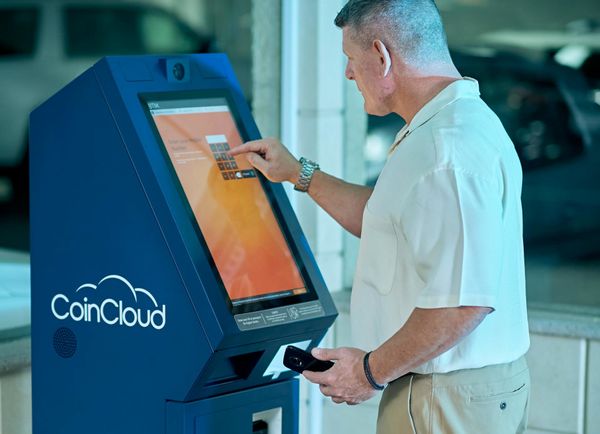Losses from Bitcoin ATM Scams Top $65 Million in First Half of 2024, FTC Report Shows

Fraud losses to Bitcoin ATMs have topped $65 million in just the first six months of 2024, increasing nearly 10-fold from 2020 to 2023, according to the US Federal Trade Commission.
The FTC’s data spotlight shows a massive increase in the amount of money consumers report losing to scammers involving Bitcoin ATM (BTM) machines. The agency’s new consumer protection report reveals that the amount cons umers reported losing surpassed $110 million in 2023.
Your typical impersonation scam
“Bitcoin ATMs are machines that look like a traditional ATM and are often found at convenience stores, gas stations and other high-traffic areas,” the agency explains. “Instead of distributing cash, they accept cash in exchange for cryptocurrency. Their use by scammers, who urge consumers to deposit cash into them to ‘protect’ their savings, is on the rise.”
Scammers impersonate government agents, company representatives, or tech support.
“The lies told by scammers vary, but they all create some urgent justification for consumers to take cash out of their bank accounts and put it into a Bitcoin ATM,” according to the FTC. “As soon as consumers scan a QR code provided by scammers at the machine, their cash is deposited straight into the scammers’ crypto account.”
Victims over the age of 60 were more than three times more likely than younger adults to report losing money to these scams. However, even across all ages the median loss reported in H1 2024 was still a staggering $10,000.
How the scams work
According to the data spotlight:
· Most BTM scams start with a call or message about supposed suspicious activity or unauthorized charges on an account
· Others get your attention with a fake security warning on your computer, impersonating Microsoft or Apple
· They might say all your money is at risk, or your information has been linked to money laundering or even drug smuggling.
· The scammer may get a fake government agent on the line – maybe even claiming to be from the “FTC” – to up the ante.
· Scammers then claim that depositing cash into the BTM machine will fix the fake problem they’ve concocted
How to protect yourself
Bitdefender recently posted two comprehensive guides describing scammers’ techniques in detail, offering valuable tips on how to protect yourself – complete with examples from recent incidents reported in the media.
Read: Got a Strange Text? 5 Signs That You’re Being Scammed (and How to Protect Yourself)
Read: Make It Hard for Scammers to Get You! Use These Seven Vital Tips
Unsolicited calls or texts – demanding your urgent attention, some form of action, or personal data – are the #1 red flag in socially engineered scams. In a recent example, phone scammers were caught impersonating the US Cybersecurity and Infrastructure Security Agency (CISA) requesting cash, cryptocurrency, and even gift cards.
Remember that:
· Legitimate organizations or government agencies will never contact you with a request for cash, cryptocurrency or gift cards
· Legitimate entities never try to anonymize the discussion or transaction
· As a rule of thumb, be wary of any request to pay for something through non-traditional methods
If you're ever suspicious of a certain phone call, email or SMS, use Scamio to find out if you’re being conned. Simply describe the situation to our clever chatbot and let it guide you to safety. You can share with Scamio the exact thing you want to check: a screenshot, PDF, QR code or link. Scamio lets you know in seconds if it’s a scam. Use it anywhere via web browser, Facebook Messenger, or WhatsApp. Scamio is localized for use in the USA, France, Germany, Spain, Italy, Romania, Australia and the UK.
tags
Author
Filip has 15 years of experience in technology journalism. In recent years, he has turned his focus to cybersecurity in his role as Information Security Analyst at Bitdefender.
View all postsRight now Top posts
Outpacing Cyberthreats: Bitdefender Together with Scuderia Ferrari HP in 2025
March 12, 2025
Streamjacking Scams On YouTube Leverage CS2 Pro Player Championships to Defraud Gamers
February 20, 2025
How to Identify and Protect Yourself from Gaming Laptop Scams
February 11, 2025
Your Device ‘Fingerprint’ Will Go to Advertisers Starting February 2025
December 24, 2024
FOLLOW US ON SOCIAL MEDIA
You might also like
Bookmarks








